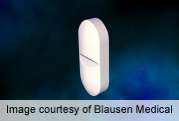Search logs can be used to inexpensively mine for anonymized signals that may alert authorities to potential drug interactions and add new Web-scale pharmacovigilance capabilities, according to research published online March 6 in the Journal of the American Medical Informatics Association.
(HealthDay)—Search logs can be used to inexpensively mine for anonymized signals that may alert authorities to potential drug interactions and add new Web-scale pharmacovigilance capabilities, according to research published online March 6 in the Journal of the American Medical Informatics Association.
Ryen W. White, Ph.D., of Microsoft Research in Redmond, Wash., and colleagues conducted a large-scale study of Web search log data gathered in 2010 to determine whether early clues about a drug's adverse events might emerge from evaluating search terms.
Specifically, the investigators evaluated whether searches for paroxetine and pravastatin could have been used to predict a drug interaction of hyperglycemia. By examining drug pairs that are known to cause hyperglycemia and those that are not associated with hyperglycemia, they were able to determine that search logs can be used to inexpensively mine for anonymized signals that may improve drug safety surveillance.
"Overall, these findings demonstrate the potential value of the log analysis for identifying drug pairs linked to hyperglycemia and illustrate the generalizability of the method beyond just the pravastatin-paroxetine pairing," the authors write.
More information:
Abstract
Full Text (subscription or payment may be required)
Journal information: Journal of the American Medical Informatics Association
Health News Copyright © 2013 HealthDay. All rights reserved.





















